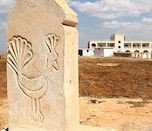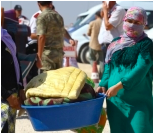NİLAY VARDAR REPORTED FROM MARDIN
Mardin Bus Terminal’s New Passengers: Ezidi People
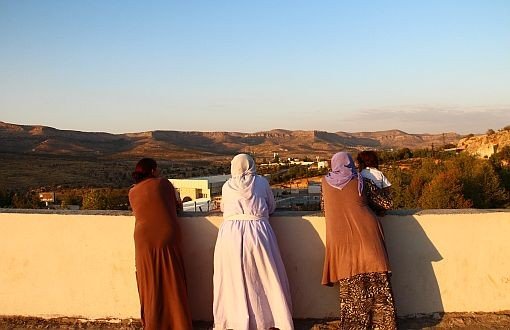
Leaving behind their homes hundreds of miles away, Ezidi women turned their face to the early-evening son; while it is yet uncertain whether they are looking at what they left behind or what is ahead to come.
An intercity bus station is hosting hundreds of passengers even before their opening hours. Ezidi people were forced to leave Sinjar province, the lands that they considered as holy. Their journey was hard and necessary. It seems like their bus journeys have no final destination.
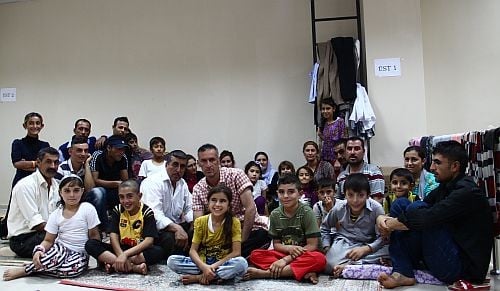
Khalid Elyas and his family are one only of those hundreds. They resisted the ISIS terror as much as they could until ISIS reached their village. Then they fled to the Sinjar Mounts which was accompanied by 9 days of hunger and thirst. They also had to walk all the path. After the arrival of PKK, their journey stretched to Turkey through Zaho and Roboski.
Escorted by PKK members to the border, Ezidi people were received by BDP municipality members. Mardin Metropolitan Municipality turned its intercity bus terminal into a camp for Ezidi people. Their journey ends at the terminal for now. They don’t want the journey to end here either, but nobody seems to hear their voice.
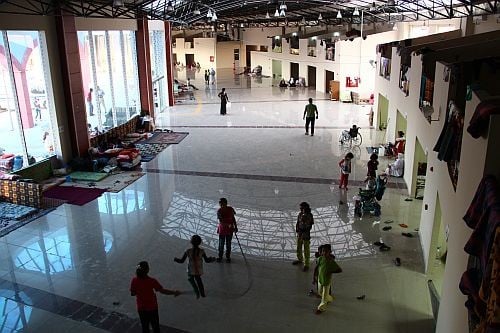
Ezidi people are now filling the offices of bus terminal officials. Kids are playing soccer, women are chatting, some are doing their laundry, others are just taking a nap. The municipality also brought portable toilets and showers to the bus terminal. Potable water is transported by big trucks. They can even eat 3 times a day and wash their dishes. There is even an infirmary. The municipality is doing its best to host its guests.
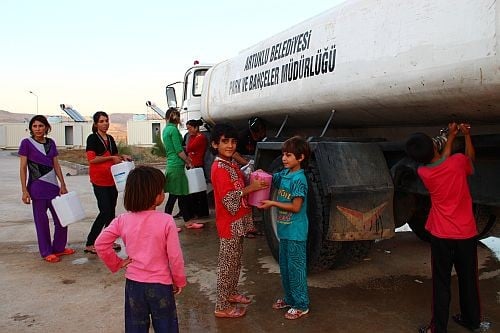
Exceeding 6,000 overall in Mardin, 1,000 of Ezidis live in the bus terminal. However, they think that they are not wanted there. Hospitals in the city don’t admit them. They have yet to see anybody from the central government.
The elder ones don’t want to risk a another long journey. They wish to go back home. Other than that, nobody wants to stay there as they dream of going to the Europe. Almost all of them have relatives in European countries and they want to live with them.
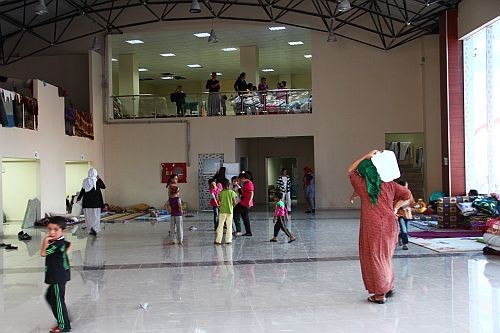
But the majority of them don’t have identity cards or passports as they didn’t even have the chance to bring them along on their way out.
They feel grateful for the Kurds who provided food and accommodation, but they are also wondering why “nobody from the Turkish government came to help”. “We are here and they are acting like we don’t exist here,” they protested.
As we started our conversation, everybody formed a circle around us, wondering whether “European countries would accept them [as refugees]. They are uncertain whether their calls would have a response.
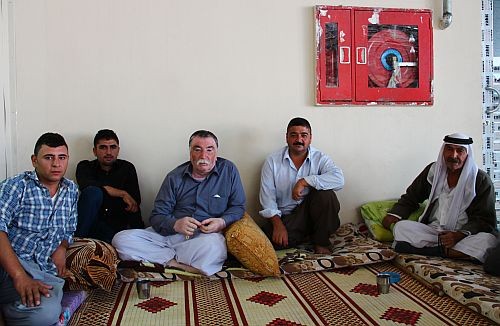
Along with his 28 member family, Rustem Yousf’s grandfathers and grandmothers left Midyat in 1913 and settled to Sinjar. He still remembers his grandfather’s words. Now he is in the land of his grandfather. “Even if they brought an airplane to my feet, I wouldn’t go to Europe,” he said.
He left behind tens of thousands tomatoes in the farm along with their animals. Beads in his hand, he points out the villages ISIS is approaching. “We have decided to stay in the village and resist, but then we had to leave when Sinjar was down,” he said.
In case they can’t return to Sinjar in the short term, Yousf is planning to resettle in Midyat’s Xıraba village - the lands of his grandfather. He said he wanted to finish his journey at its starting point. His grandchild is still worries: “I don’t want to go back to Sinjar. we have been saved by the PKK this time, who will save us next time?” (NV/BM)
Engineers Inspect Hasankeyf: Caves Damaged
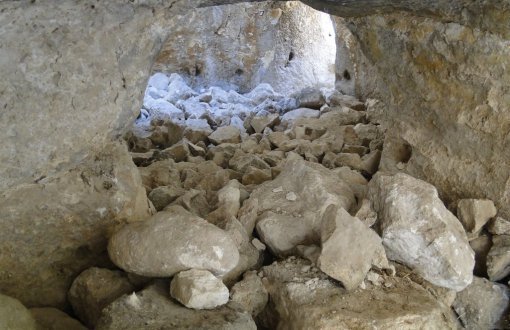
Sexual, Physical Violence Against People With Disabilities Increase

Villagers on Watch in Çanakkale Against Geothermal Power Plants
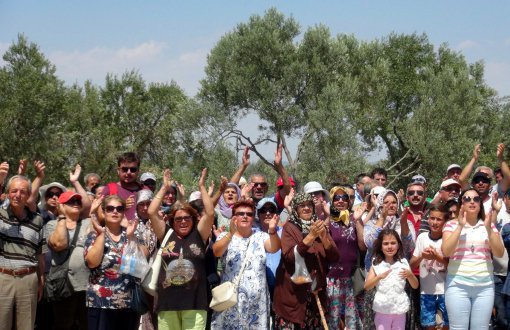
Judge Replaced Ahead of Summary Judgement in Soma Trial
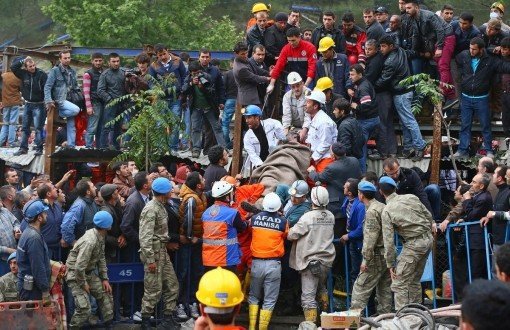
Most Miner Families Withdraw Complaint in Occupational Homicide Trial in Şirvan






